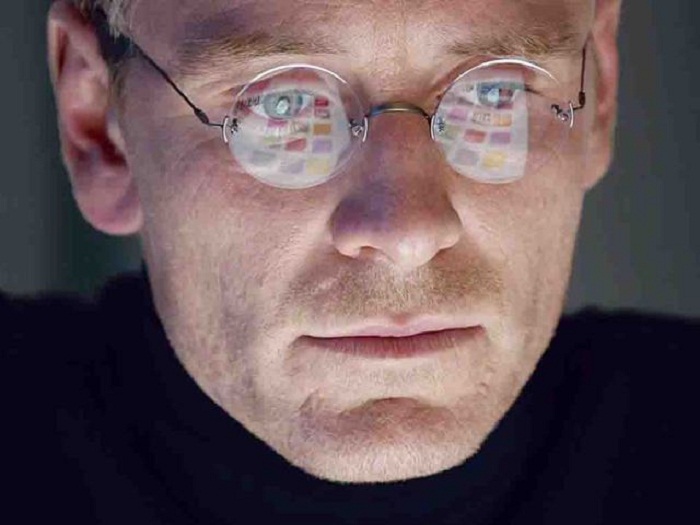But the core of the story — the how and they why of inventing Facebook — was fiction. "There are hugely basic things that they got wrong, too," he said. "They made it seem like my whole motivation for building Facebook was so I could get girls, right? And they completely left out the fact that my girlfriend I`ve been dating since before I started Facebook."
Steve Jobs is the second Aaron Sorkin film about tech founders. Like The Social Network before it, the film is about the wreckage that genius leaves in its wake. The Social Network was about intellectual theft and personal betrayal; Steve Jobs is about personal destruction and parental abandonment. Both films enmesh the audience in a kind of complicity: We purchase and even love the products, so aren`t we enabling the callous, ruthless men who created them?
The two movies, however, act as a strange echo of their subjects. They`re wonderful, vivid works — The Social Network won Aaron Sorkin an Oscar for Best Screenplay, and Rolling Stone says that Steve Jobs is "sure to rank with the year`s very best films." They`ve been watched and loved by millions, and they`ve further cemented Sorkin`s status as Hollywood`s premier writer.
But they are also cruel, unsparing functionalizations of the lives lived by real people. They are anchored by moments that never happened in which the characters say words they never really said. The Social Network "made up a bunch of stuff that I found kind of hurtful," Zuckerberg said later — and it completely wrote Priscilla Chan, Zuckerberg`s girlfriend and now his wife, out of Facebook`s founding story. Jobs`s widow, Laurene Powell Jobs, reportedly tried to stop Steve Jobs from being made.
It does not excuse the sins of Jobs or Zuckerberg to say they don`t deserve to have crueler words than they really uttered put into their mouths, or pettier motivations than they really had written over their origin stories.
Sorkin doesn`t hide the fact that he is fictionalizing the lives of real people to such a degree that their friends and colleagues can`t recognize the result — but many who see these films will never know they are deeply untrue; they`ll assume that people as powerful as Zuckerberg and Jobs have lawyers who can prevent filmmakers from rewriting their lives in a major theatrical release.
There is a reason Sorkin is so good at writing ruthless geniuses. He is one himself, and, as with his subjects, he is practiced in excusing the pain he inflicts on the few by pointing out the joy he brings to the many.
Asked what the real Steve Jobs would think of the movie if he were alive today, Sorkin replied, "If this movie were about someone else, he’d like it." It`s an unintentional echo of a scene in the film, when Jobs`s ex-wife asks why the money Jobs made off the Mac isn`t supporting his daughter, and he says Apple is donating trucks full of computers to poor and underserved kids — if his daughter were someone else, the Mac would be helping her.
There is a callousness to what Sorkin is doing — and it`s the same callousness he identifies in his subjects. He is willing to hurt people privately in order to make a great work of art for the public. And as with the iPhones in our pockets and the Facebook profiles flickering on our screens, all of us who love these films are quietly proving that we don`t much care about the small crimes necessary to create beautiful things.
More about:
















































